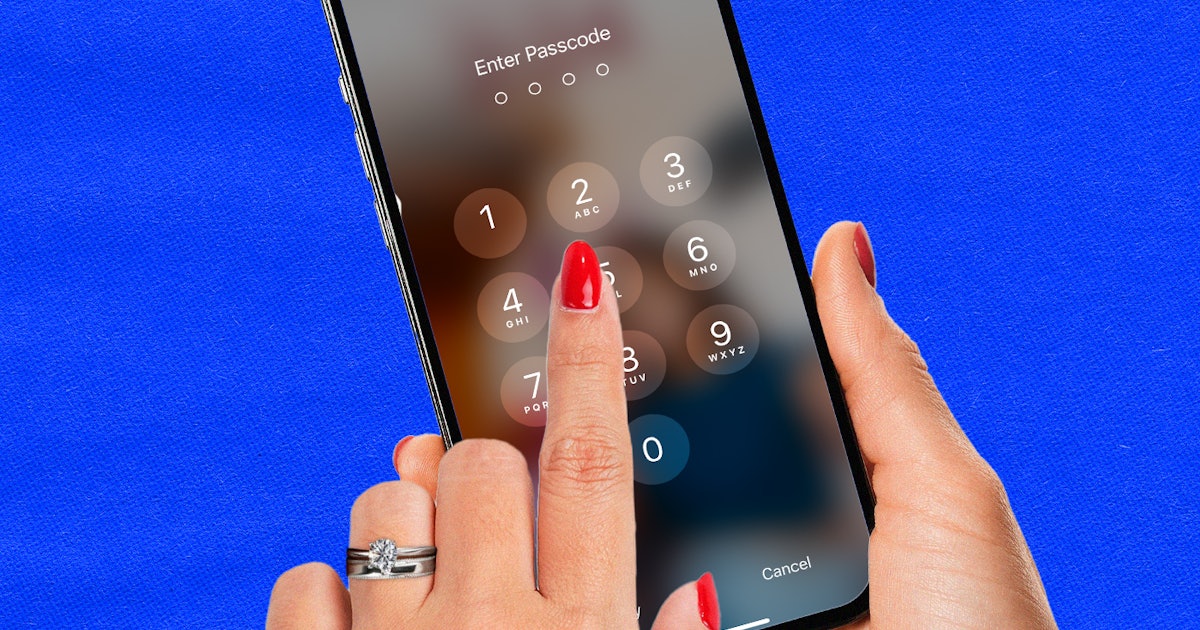In typical ’90s kid fashion, I grew up journaling to record my deepest thoughts, fears, and dreams. And, while perpetuating this millennial stereotype, I also grew up with a nagging fear that my parents would one day invade my privacy and read my diary.
Now, as an adult and a parent myself, my thoughts on the matter are not so simple. If my child wasn’t talking to me and I was worried something was going on, would I go to the most honest source of information? Of course, technology has completely obsolete the idea of diaries, which are now digital.
According to a study from the Stanford University School of Medicine, researchers found that the average age at which children get their first cell phones is just over 11 years old, and that number rises steadily by age 12 1/2, with more than half of the children already owning one. cell phone. With the rise of mobile phones, parents are faced with a dilemma – is it okay to read their children’s text messages?
The answer is not a simple yes or no. Age, environment and other factors are important when making this decision. We spoke with two adolescent mental health experts to find out what parents need to consider in this situation.
It may be necessary
Most parents want to respect their children’s privacy, but are there any situations where this line needs to be crossed? According to two experts I spoke to, the answer is yes.
consider age
Erika Bent, a licensed therapist with Cypress Wellness Collective, talks about two situations in which privacy must be broken. The first one is when they are very young, or when they first get a cell phone. “Just like parents vet friends and their friends’ parents before allowing sleepovers, it makes sense to have the same vetting on technology platforms,” Bent shared. “At a certain age, such as 13 and above, the need for independence becomes more important and parents should respect their children’s privacy needs.”
Psychologist Dr. Catherine Nobile, director of Nobile Psychology, agrees. “For younger children, especially those under the age of twelve, parents may find it necessary to monitor their communications to protect them from online risks such as cyberbullying, inappropriate material or harmful interactions, “Nobile said.
Worry about serious problems
Additionally, if a parent has serious concerns, such as depression or bullying, it may be necessary to investigate what your child is saying to friends on their phone. In these situations, Bent shared, “If invading a child’s privacy can bring them life-saving support, then it can be a necessary but difficult parenting decision. Understandably, this can lead to serious relationship breakdown, so Parents should be wary of such intrusions into privacy.
Nobile echoed that reasoning, saying it might be reasonable to censor their messages if there are concerns about safety or disturbing behavior. However, she recommends taking the situation seriously. “Discuss openly why you think it’s necessary to check their messages and involve them in discussions about privacy and security,” Nobile explains. “Finding a balance between respecting their privacy and fulfilling parental responsibilities requires maintaining trust and creating an atmosphere of mutual respect.”
Disadvantages of Reading Your Child’s Newsletters
While in some cases it may be necessary to check what your children are doing on their phones, you also need to make yourself aware of the potential impact this may have on your relationship.
The main one is an invasion of privacy, which may negatively impact their trust in you. Additionally, it can inhibit a child’s ability to establish his or her own independence. “When children are separated from their parents, parents need to embrace the new normal and let go of excessive involvement,” Bent explains. “If parents are reading texts because they are trying to transition to more autonomy, then reading texts for their children is even more important.” Being selfish and not in the best interest of the child.
Instead of constantly monitoring their activities, Nobile recommends creating an “environment of open dialogue” where you can set clear boundaries. “Encouraging them to share their concerns or questions with you helps build trust and allows guidance to be provided without intrusive monitoring,” Nobile says.
Establish healthy boundaries from the start
Perhaps the most helpful thing parents can do when their children are using a cell phone for the first time is to establish healthy boundaries from the beginning. For example, if a young child has a cell phone, Bent thinks it’s reasonable for parents to have the right to see what they’re texting and doing on the device.
However, this should be clearly outlined from the outset. “Parents should let their children know that they are monitoring their activities and text messages to avoid accidents,” Bent shared. “It’s important that parents explain why this is important and how they will support their children in learning healthy skills and boundaries when using devices to communicate.”
Nobile also shared the importance of being clear about cell phone usage rules from the beginning. She explains that setting expectations helps avoid potential misunderstandings and “creates transparency in digital communications practices.” She believes setting guidelines can help you “clearly understand the balance between privacy and parental supervision and give children the opportunity to express any concerns, while emphasizing the importance of open and honest communication.”




